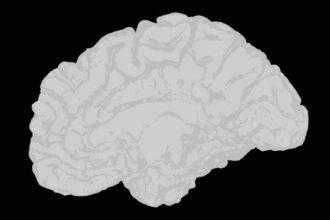Depersonalization and derealization are complex psychological phenomena that can leave you feeling disconnected from yourself and the world around you. When you experience depersonalization, you may feel as though you are observing your life from a distance, as if you are an outsider looking in. This sensation can be unsettling, making you question your own identity and reality.
On the other hand, derealization involves a sense of detachment from your surroundings, where the world may seem dreamlike or distorted. These experiences can be triggered by stress, trauma, or anxiety, and they often occur together, leading to a profound sense of confusion and disorientation. Understanding these conditions is crucial for anyone who has experienced them.
They are not merely symptoms of a mental health disorder but can also be responses to overwhelming stress or emotional turmoil. You might find yourself grappling with feelings of unreality during particularly challenging times in your life. Recognizing that these feelings are not uncommon can be the first step toward addressing them.
It’s essential to remember that while depersonalization and derealization can be distressing, they are often temporary and can be managed with the right strategies and support.
Key Takeaways
- Depersonalization is a feeling of being disconnected from oneself, while derealization is a sense of being detached from the surrounding environment.
- Symptoms of depersonalization and derealization include feeling like an outside observer of one’s thoughts and actions, experiencing distorted perceptions of time and space, and feeling emotionally numb.
- Seeking professional help from a therapist or psychiatrist is crucial for managing depersonalization and derealization.
- Coping strategies such as relaxation techniques, grounding exercises, and mindfulness practices can help manage symptoms and reduce the frequency of episodes.
- Building a support system, making lifestyle changes, practicing self-care, and finding meaning and purpose are important aspects of embracing recovery from depersonalization and derealization.
Recognizing the Symptoms
Recognizing the symptoms of depersonalization and derealization is vital for understanding your experiences. You may notice that you feel detached from your thoughts or emotions, as if they belong to someone else. This can manifest as a sense of numbness or a lack of emotional response to situations that would typically elicit strong feelings.
You might also experience a distorted perception of time, where moments seem to stretch or compress in ways that feel unnatural. These symptoms can create a sense of confusion and anxiety, making it difficult to navigate daily life. In addition to these feelings, you may also experience physical sensations that accompany depersonalization and derealization.
For instance, you might feel lightheaded or dizzy, as if you are floating outside your body. Your surroundings may appear foggy or unreal, leading to a heightened sense of vulnerability. It’s important to pay attention to these symptoms and how they affect your daily functioning.
By acknowledging what you’re experiencing, you can begin to take steps toward finding relief and regaining a sense of control over your life.
Seeking Professional Help

If you find yourself struggling with depersonalization and derealization, seeking professional help is a crucial step in your journey toward recovery. A mental health professional can provide you with the tools and support necessary to understand and manage these experiences. Therapy options such as cognitive-behavioral therapy (CBT) have been shown to be effective in treating these conditions by helping you reframe negative thought patterns and develop coping strategies.
You may also benefit from talking to someone who understands what you’re going through, allowing you to express your feelings in a safe environment. In addition to therapy, medication may be an option worth exploring with your healthcare provider. While there is no specific medication for depersonalization and derealization, certain antidepressants or anti-anxiety medications can help alleviate underlying symptoms of anxiety or depression that may contribute to your experiences.
It’s essential to have open and honest conversations with your healthcare provider about your symptoms and treatment options so that you can find the best approach for your individual needs.
Exploring Coping Strategies
| Strategy | Effectiveness | Popularity |
|---|---|---|
| Exercise | High | Medium |
| Mindfulness | High | High |
| Social Support | High | High |
| Problem-Solving | Medium | Low |
Exploring coping strategies is an essential part of managing depersonalization and derealization. You may find that certain techniques resonate with you more than others, so it’s important to experiment and discover what works best for your unique situation. One effective strategy is engaging in grounding exercises, which can help anchor you in the present moment.
This might involve focusing on your breath, feeling the texture of an object in your hand, or listening intently to the sounds around you. By redirecting your attention to the here and now, you can reduce feelings of detachment. Another valuable coping strategy is journaling.
Writing about your experiences can provide an outlet for your thoughts and emotions, allowing you to process what you’re going through. You might find it helpful to document your feelings when they arise, noting any triggers or patterns that emerge over time. This practice not only helps you gain insight into your experiences but also serves as a reminder that you are actively working toward understanding and managing your condition.
Mindfulness and Grounding Techniques
Mindfulness and grounding techniques are powerful tools for managing depersonalization and derealization. Mindfulness involves cultivating an awareness of the present moment without judgment, allowing you to observe your thoughts and feelings without becoming overwhelmed by them. You might practice mindfulness through meditation, focusing on your breath, or engaging in mindful activities such as walking or eating.
By bringing your attention back to the present moment, you can create a sense of stability amidst the chaos of depersonalization. Grounding techniques complement mindfulness practices by helping you reconnect with your body and surroundings. Simple exercises like focusing on the sensations in your feet as they touch the ground or counting objects in the room can help anchor you when feelings of detachment arise.
You might also try using your senses—what do you see, hear, smell, or touch? Engaging with your environment in this way can help bridge the gap between yourself and the world around you, fostering a greater sense of connection.
Managing Stress and Anxiety

Managing stress and anxiety is crucial for reducing episodes of depersonalization and derealization. High levels of stress can exacerbate feelings of disconnection, making it essential to develop effective stress management techniques. You might consider incorporating regular physical activity into your routine, as exercise has been shown to reduce anxiety levels and improve overall well-being.
Whether it’s going for a run, practicing yoga, or simply taking a brisk walk, finding an activity that you enjoy can make a significant difference in how you feel. Additionally, practicing relaxation techniques such as deep breathing exercises or progressive muscle relaxation can help alleviate tension in both your mind and body. When you notice stress creeping in, take a moment to pause and focus on your breath—inhale deeply through your nose, hold for a few seconds, then exhale slowly through your mouth.
This simple practice can help calm your nervous system and create a sense of peace amidst the chaos.
Creating a Support System
Creating a support system is vital for anyone dealing with depersonalization and derealization. Surrounding yourself with understanding friends and family members can provide a sense of comfort during difficult times. You might consider sharing your experiences with those close to you so they can better understand what you’re going through.
Having someone to talk to who listens without judgment can make all the difference when you’re feeling isolated or overwhelmed. In addition to personal relationships, consider seeking out support groups or online communities where individuals share similar experiences. Connecting with others who understand what you’re going through can foster a sense of belonging and validation.
These spaces allow for open discussions about coping strategies, challenges, and successes in managing depersonalization and derealization.
Lifestyle Changes for Coping
Making lifestyle changes can significantly impact how you cope with depersonalization and derealization. One important aspect is ensuring that you’re getting enough sleep each night. Sleep deprivation can exacerbate feelings of anxiety and disconnection, so prioritizing rest is essential for maintaining mental clarity and emotional stability.
Establishing a consistent sleep routine—going to bed and waking up at the same time each day—can help regulate your sleep patterns. Nutrition also plays a crucial role in mental health. A balanced diet rich in whole foods—fruits, vegetables, lean proteins, and whole grains—can provide the nutrients necessary for optimal brain function.
You might also want to limit caffeine and sugar intake, as these substances can contribute to anxiety levels. By making conscious choices about what you eat and drink, you’re taking proactive steps toward supporting your mental well-being.
Self-care Practices
Incorporating self-care practices into your daily routine is essential for managing depersonalization and derealization effectively. Self-care encompasses various activities that promote physical, emotional, and mental well-being. You might find joy in engaging in hobbies that bring you fulfillment—whether it’s painting, gardening, reading, or playing an instrument—these activities can serve as valuable outlets for expression and relaxation.
Taking moments throughout the day to check in with yourself allows you to acknowledge any feelings of disconnection while also fostering self-compassion. Remember that self-care is not selfish; it’s an essential part of maintaining balance in your life.
Finding Meaning and Purpose
Finding meaning and purpose in life can be transformative when dealing with depersonalization and derealization. Engaging in activities that align with your values can create a sense of fulfillment that counteracts feelings of disconnection. You might explore volunteer opportunities or pursue passions that ignite a sense of purpose within you—whether it’s helping others or contributing to causes that matter to you.
Reflecting on what brings you joy and fulfillment can also guide you toward setting meaningful goals for yourself.
Embracing Recovery
Embracing recovery from depersonalization and derealization is an ongoing journey that requires patience and self-compassion. It’s important to recognize that healing takes time; there will be ups and downs along the way. Celebrate small victories as they come—whether it’s having a day where you feel more connected or successfully implementing coping strategies during challenging moments.
As you navigate this journey, remind yourself that recovery is possible. By actively engaging in self-care practices, seeking support from professionals and loved ones, and exploring coping strategies that resonate with you, you’re taking significant steps toward reclaiming your sense of self and reality. Embrace each moment as an opportunity for growth, knowing that every effort contributes to your overall well-being.
In conclusion, understanding depersonalization and derealization is the first step toward managing these experiences effectively. By recognizing symptoms, seeking professional help, exploring coping strategies, practicing mindfulness, managing stress, creating support systems, making lifestyle changes, prioritizing self-care, finding meaning in life, and embracing recovery, you can navigate this journey with resilience and hope for a brighter future.
If you’re experiencing feelings of depersonalization and derealization, you’re not alone. These sensations can be unsettling, making you feel disconnected from your own body or the world around you. For more insights into these experiences and how to manage them, you might find this article on Unplugged Psych helpful. It delves into the psychological aspects of these conditions and offers practical advice for coping with them. Understanding the underlying mechanisms can be a crucial step towards regaining a sense of normalcy and control.
LEARN MORE About Unmasking the Mysteries Behind Depersonalization and Derealization
FAQs
What is depersonalization and derealization?
Depersonalization is a mental health condition characterized by feeling detached from one’s own thoughts, feelings, and body. Derealization is a similar condition where individuals feel disconnected from their surroundings, experiencing a sense of unreality or detachment from the environment.
What are the symptoms of depersonalization and derealization?
Symptoms of depersonalization and derealization may include feeling like an outside observer of one’s thoughts or body, feeling like the world is unreal or distorted, emotional numbness, and difficulty connecting with one’s own emotions.
What causes depersonalization and derealization?
The exact cause of depersonalization and derealization is not fully understood, but it is often associated with trauma, stress, anxiety, depression, and certain psychiatric disorders. Substance abuse and certain medications can also trigger these symptoms.
How are depersonalization and derealization treated?
Treatment for depersonalization and derealization may include therapy, such as cognitive behavioral therapy (CBT) or dialectical behavior therapy (DBT), to help individuals understand and manage their symptoms. Medications, such as antidepressants or anti-anxiety medications, may also be prescribed in some cases.
Can depersonalization and derealization be cured?
While there is no specific cure for depersonalization and derealization, many individuals can experience significant improvement in their symptoms with appropriate treatment and support. It is important to seek help from mental health professionals to develop coping strategies and manage these symptoms effectively.




